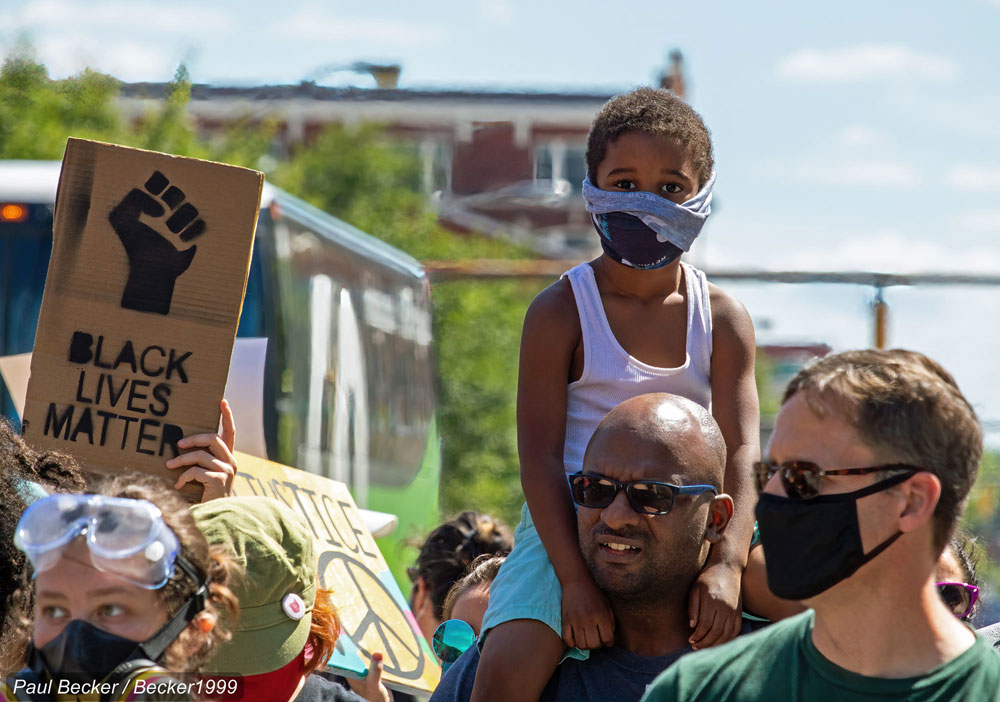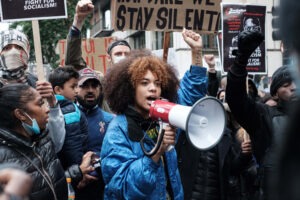
August 31, 2020; New York Times
The role of the media in framing the events of the day cannot be overstated. Journalists understand that their choices of words and narratives are critical in helping to paint a clear picture of events. This can be, as has been said many times before, an impossible proposition if an entire newsroom is mired in dominant culture. That puts civil society which needs responsible media in a dangerous state.
Daniel J. Thompson was the only full-time Black journalist at the Kenosha News in Wisconsin on Saturday when the paper covered a rally protesting the police shooting of Jacob Blake. Now, the paper has no full-time Black journalist. Thompson quit after he was rebuffed when he expressed his concern about the headline that ran atop an article about the rally, which highlighted one speaker’s threat of retaliation amid an otherwise peaceful event at which Blake’s father, among many others, called for unity.
The Root describes the rally speakers overall:
They delivered touching remarks to Blake and his family, called on urgent social and criminal justice reforms to protect Black lives and urged Black people to vote at the polls. The overall messaging—as it has been with many of the Black Lives Matter protests around the country this summer—outlined the need for change and called on the crowd to do what they could to push that change forward.
But when Thompson looked at his own paper’s article on the rally, the headline read, “WATCH NOW—Kenosha speaker: ‘If you kill one of us, it’s time for us to kill one of yours.’” The online article included a link to a video of the unidentified speaker. Placing this in fuller context, the article ran only days after Kyle Rittenhouse, a 17-year-old from Illinois, was charged with homicide in the killings of two protesters during earlier demonstrations in Kenosha. When Thompson, who attended the rally, saw the headline, which he found entirely misrepresentative of the rally, he sent a text to Bob Heisse, the executive editor of the Kenosha News.
Sign up for our free newsletters
Subscribe to NPQ's newsletters to have our top stories delivered directly to your inbox.
By signing up, you agree to our privacy policy and terms of use, and to receive messages from NPQ and our partners.
“I don’t even know if I can associate with the company after that,” Thompson said in the text exchange. “I need to calm down, but I wanted you to know immediately.”
Heisse responded, “Yes, you should calm down. That is a public threat, and it is an exact quote at a rally that was to that point totally on message.”
Thompson quit by return text, posting a video on Facebook in explanation:
I did what I did because today is about Jacob Blake. It’s about his family, it’s about moving forward together peacefully, and I saw that today, and that headline did not reflect it. And when they refused to change it, I quit.
The headline did get changed eventually to “Kenosha speaker strays from message at rally,” as can be seen here, but that falls far short of what this paper needs to say and do to credibly cover issues of racial justice in Kenosha.
Thompson is now considering whether it’s viable for him to start or run a media company in Kenosha. (You can help him mull this question by contributing to his GoFundMe campaign, which has already raised more than four times its $5,000 goal.) This impulse to establish an endeavor without so much to unlearn so urgently is no longer unusual. Media outlets led by people of color are springing up all around the country as a network emerges to counter the familiar and destructive narratives regularly played out in mainstream media as support for the maintenance of an illegitimate social order.—Ruth McCambridge












